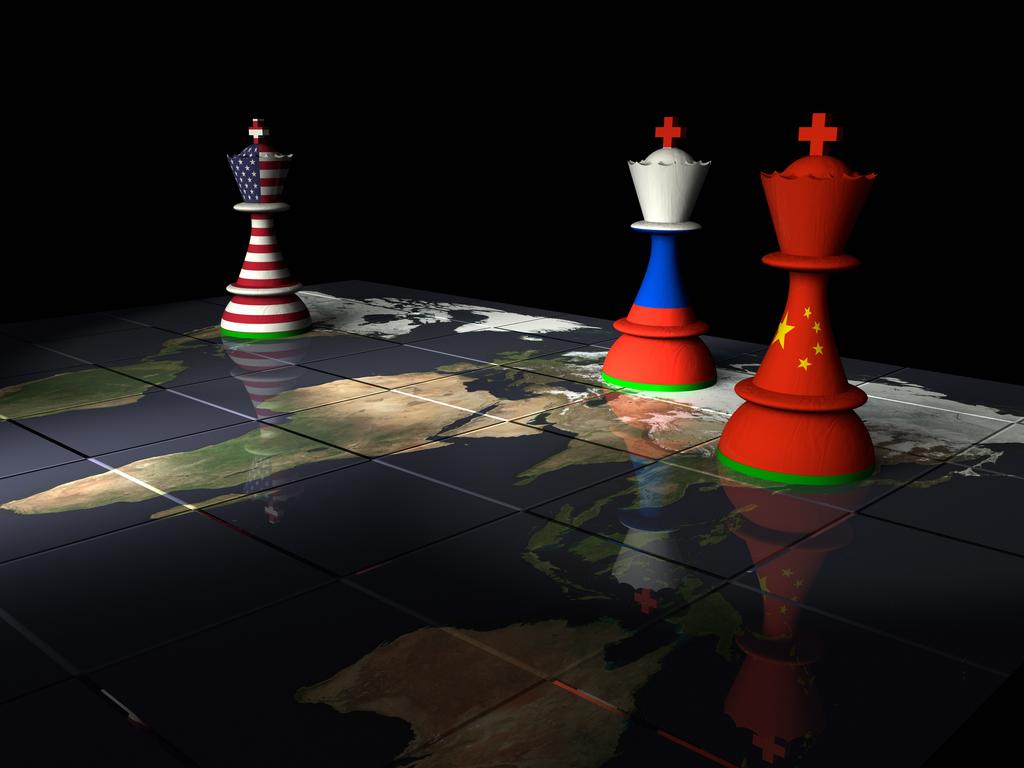West cannot afford to fail in face of authoritarian regimes

No rules had been broken, no fraud committed. If any Russian interference in the election had been suspected, it would have been on the other side, for Marine Le Pen had long been an admirer of Vladimir Putin, whom she regarded as a strong leader committed to the defence of the interests of his country – by implication, just what France needs.
But political legitimacy in a wider sense is more than a matter of merely having played by the rules: it requires a degree of genuine popularity, or at least respect, precisely what Macron lacks.
When the results were announced – with a promptitude that puts some other countries to shame – there was little by way of celebration, at most a slight feeling of relief.
The result had never really been in doubt, and in fact the margin of Macron’s victory was larger than most polls predicted; but if by some mischance Le Pen had won, there would have been immediate and severe social unrest that would have made the riots of 2005 seem positively genteel by comparison.
But relief that an opponent did not win is not popularity. Macron implicitly recognised this in his victory speech which eschewed all triumphalism. For one thing, he spoke to a crowd that would have been 100 times larger, and many times more enthusiastic, had Paris Saint-Germain (the capital’s main football team, owned of course by the Qataris) won a tournament.
For another, he must have been aware that nearly two-thirds of his countrymen – taking into account abstentions and spoiled ballots – did not vote for him. Moreover, of the third who voted for him, many or perhaps even most did so faute de mieux – that is to say, in the absence of anything better. To wield the enormous power that a French president has on so slender an electoral base is inherently hazardous and liable to cause severe contestation whatever he does with it.
The safest policy in the circumstances is de facto immobilism: except, of course, that inescapable problems are building up, not least of them inflation and a burgeoning public debt.
Macron is hated by many to whom I have spoken with a vehemence that seems excessive by comparison with anything that he has done, for while he may appear aloof and superior, and has made mistakes, he is no monster. He acts, rather, as a lightning conductor for all the frustrations of the population, among which is that the system does not heed or represent them. The underlying problem is that they are now so diverse in their incompatible interests and preoccupations that no system could represent a clear majority of them.
The French like to think their problems are unique to France, so that much of their commentary is what is called franco-francais, concerned only with what concerns only their country. But in fact the problem of political legitimacy is one that is common to many Western countries in which two-party systems have broken down and become Balkanised, so to speak.
When two political parties represented, at least symbolically, the interests and concerns of a very high percentage of the population, the system was seen as legitimate, and could absorb a degree of personal unpopularity of major political figures. Everyone in Britain, for example, once knew what the Conservative and Labour parties stood for, at least in theory even if they disappointed in practice, and between them they garnered the overwhelming majority of votes. Everyone accepted the legitimacy of the victory of the party for which he did not vote.
Electorates have since become fractured, perhaps as a result of the increase in number of ideologies in the West that followed the end of the Cold War. The rise of identity politics, that pandered to personal and group grievances (real or imagined, or something in between the two), as well as such causes as saving the planet, intersected with differences over nationalism and internationalism, multiculturalism and assimilationism, as well as with economic liberalism and protectionist interventionism, thereby undermining the simple political schema that had previously reigned.
Politicians therefore found it necessary to appeal to disparate groups of monomaniacs and promise them contradictory things in return for their votes. Almost by definition, monomaniacs are disproportionately influential because they are prepared to remain at a meeting when everyone else has gone to the pub. Politicians, then, have to juggle constantly, even more than they had to do in the past, for example by trying to satisfy both the transsexual lobby and the feminists who deny that transsexual woman are women. If there is a contradiction, the question is not which side of it is in the right but which is likely to win the more votes. Such juggling is undoubtedly a skill, but not one to earn anything but the contempt of most people.
A good example is Boris Johnson’s sudden conversion to an extreme form of environmentalism. I think we may safely exclude in his case any question of genuine conviction or concern for the future of the earth.

It was not long ago that he mocked the tree-huggers and friends of the rabbit. But he needs middle-class votes, and the middle classes, grown fat with low interest rates, now concerned themselves with the fate of the rainforests. Rising energy prices and the prospect of cold showers soon put paid to that, and so it is now full steam ahead for what was previously anathema, namely prospecting for fossil fuels. How can one respect such flip-flopping?
The left has the same problems. It has to decide whether to attract the bourgeois bohemians or the horny-handed sons of labour. Their interests and tastes do not necessarily coincide. The former are more concerned with asexual toilets, the right to die with dignity, subventions for experimental art, free access to the country of immigrants whom they will never meet except as hewers of wood and drawers of water, the number of women on company boards, and so forth; the latter with job security, the age of retirement, high taxes and protection from the competition of immigrant labour.
Overall, it is increasingly difficult to appeal to a majority of a politician’s countrymen because the concerns of their countrymen are so fragmented and disparate. Indeed, it is increasingly disputed that a country is a proper locus of anyone’s concern in the first place. If it is denied that there is such a thing as the national culture, as Macron once did, why should anyone respect, let alone admire, the leader of a nation? Is he not but a usurper of power in a purely artificial construction?
This is all the more the case when two-thirds of the population did not vote for him when given the choice of two candidates, and 20 per cent when given the choice (as in the first round of the French elections) of more candidates.
The situation in Britain is hardly better: in 2019, Johnson won 28 per cent of the electorate’s votes, and in 2001, Tony Blair won 24 per cent of them.
The problem is that political power has to be exercised somehow: with the exception of a few anarchists, everyone is agreed at least on that. Proportional representation, which does not exist in France or Britain, might seem a solution, but it brings problems of its own from the point of view of political legitimacy. The constant need for coalition makes change even more difficult and compromise on principle inevitable, leading to a contempt for the political class as a whole as an unscrupulous gaggle of mere place-seekers.
Compulsion to vote as in Australia is not guaranteed to bring about the kind of clear result that political legitimacy requires and will do nothing to alleviate the ideological fragmentation that we now see.
Yet some kind of unity is necessary if our relatively liberal world is to face the challenge posed by determined and powerful authoritarian regimes. At the moment, though, the German Greens would rather a Russian boot on the face than a nuclear power station 160km away, and the Social Democrats a coalition with the Greens rather than be out of office.
Theodore Dalrymple is the author of more than 30 books, including Grief and Other Stories (New English Review Press).







No one, not even his opponent, disputed that Emmanuel Macron had been legitimately re-elected President of France.